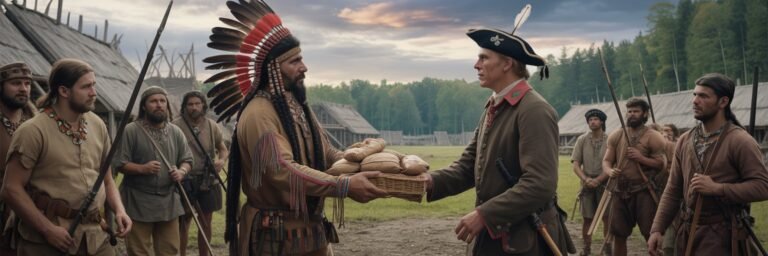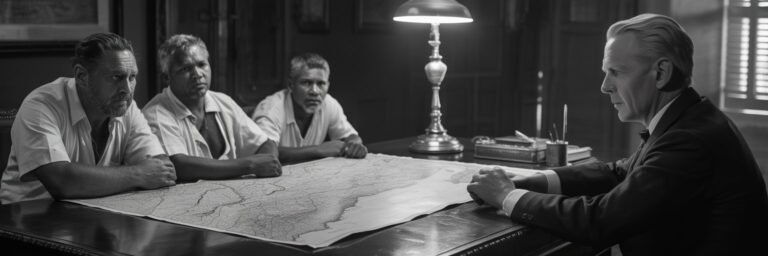INTRODUCTION
Uncovering the layers of the past unveils a wealth of stories and people who shaped the world we see today. Among these, colonial history stands as a seismic turning point, roiling waters leading to the birth of new nations and global power structures. Eminent figures emerged during this era, molding history through their actions and decisions. This feature intends to journey through the grand canvas of colonial history, tracing the narrative of some of its most influential figures who left indelible marks on the sands of time.
HISTORICAL BACKGROUND
Colonial history encompasses the period from the 15th to the 20th century when empires like Britain, France, Spain, and the Netherlands established colonies worldwide. This era witnessed transformational characters whose policies, visions, and personalities shaped continents. From Christopher Columbus launching the discovery era to George Washington leading American independence, these figures were not mere spectators but architects of history.
A broader understanding of colonial history cannot ignore figures like Hernán Cortés, whose conquest of the Aztecs signaled the downfall of pre-Columbian civilizations, or Cecil Rhodes, who left an indelible imprint on Africa’s socio-political terrain. Their actions shaped nations, demarcated boundaries and defined modern geopolitics.
THEORIES AND INTERPRETATIONS
Adding layers to colonial history are varied perspectives, within which influential figures find themselves examined under different lenses. Traditional interpretations often idealize Columbus, portraying him as an adventurous explorer. However, postcolonial readings depict him as the harbinger of Indigenous genocide.
Cortés is similarly enigmatic. In some accounts, he’s a ruthless invader; others view him as transformative, intertwining Europe and the Americas. Rhodes stands as another divisive figure. Praised as the pioneer of British imperialism in southern Africa, according to some, he remains abhorred by others for his role in engendering racial segregation.
MYSTERIES AND CONTROVERSIES
Colonial history is replete with intrigue and debate. The exact intent of Columbus’s voyages – was it primarily exploration or exploitation? – is a contentious issue, intensively debated by historians. Likewise, Queen Isabella’s role—often reduced to a mere financier of Columbus’s voyages—is increasingly being re-evaluated, with newer perspectives highlighting her as a key architect of Spanish imperialism.
Questions around Cortés’s motives–was he seeking personal glory or expansion of Spanish territories?– fuel intense conversations. The legacy of Rhodes is steeped in controversy, with many questioning his philanthropy, given his vehement belief in British superiority and the Cecil Rhodes Scholarship’s existence at Oxford University.
SYMBOLISM AND CULTURAL SIGNIFICANCE
The figures from colonial history, despite their inherent complexities, carry undeniable cultural significance. Columbus Day—though controversial toward Indigenous communities—is still celebrated in many parts of the Americas, symbolizing the meeting of two worlds. Similarly, Cortés, through his conquest, representa the genesis of mestizo culture in Mexico, a fusion of Indigenous and Spanish traditions.
Rhodes’s legacy is reflected in Rhodesia’s (now Zimbabwe) name, although it’s also mired in struggles over decolonization and racial equality. Figures like George Washington and Montezuma have transformed over time into cultural symbols of resistance and martyrdom, representing hopes and grievances of their nations.
MODERN INVESTIGATIONS
Contemporary research and narratives bring fresh perspectives to colonial history. Recent studies on Columbus posit him less as a hero and more as a catalyst for destruction. The focus is shifting from his exploratory prowess to the subsequent genocide and cultural erasure inflicted on Indigenous populations.
Modern investigations into Cortés’s conquest unveil accounts from the Aztec perspective, providing a richer, more nuanced version of history. Simultaneously, the examination of Rhodes’s legacy, particularly amid the Rhodes Must Fall movement, reflects current attempts to confront colonial pasts and dismantle enduring symbols of imperialism.
LEGACY AND CONCLUSION
The complexities inherent to colonial figures necessitate careful, balanced scrutiny of their legacies. They influenced centuries of history, shaping nations and civilizations with their actions and ideologies; their impacts are visible even today, interweaved in our socio-political fabric.
Columbus, though vilified for instigating Indigenous erasure, still embodies the eternal human spirit of exploration. Cortés, despite his debatable motives, signifies the cross-cultural synthesis that forms a significant part of Mexican identity today. Figures like Rhodes leave a legacy of structured education alongside questions on racial superiority.
Ultimately, colonial history stands as an ample testament to human nature’s dualities, our capacity for exploration, innovation, and unification, along with destruction, exploitation, and division. Through these influential figures‘ life stories, we gain valuable insights into our past and invaluable lessons for our future. As we continue to reexamine colonial history, acknowledging its variegated hues, these figures’ narratives serve as compasses, guiding us through the labyrinth of our shared past.
While it may feel like we’re studying long-gone eras and deeds, in reality, the figures we encounter in colonial history are as human as we are, carrying equal measures of virtues and vices. Recognizing this humanity enables a more empathic engagement with history, allowing us to learn from historical actions without being confined by them.






